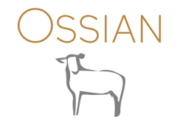Synthetic sheep fleece adding micro plastics into the oceans
16 of 20 Stages of the Evolution of British Wool The fashion industry , what we need to change This is the Collins dictionary definition of the word fleece, sadly most people now associate fleece with the synthetic fibre used to make outerwear tops. It takes up to a hundred years for the fabric of […]
Synthetic sheep fleece adding micro plastics into the oceans Read More »







